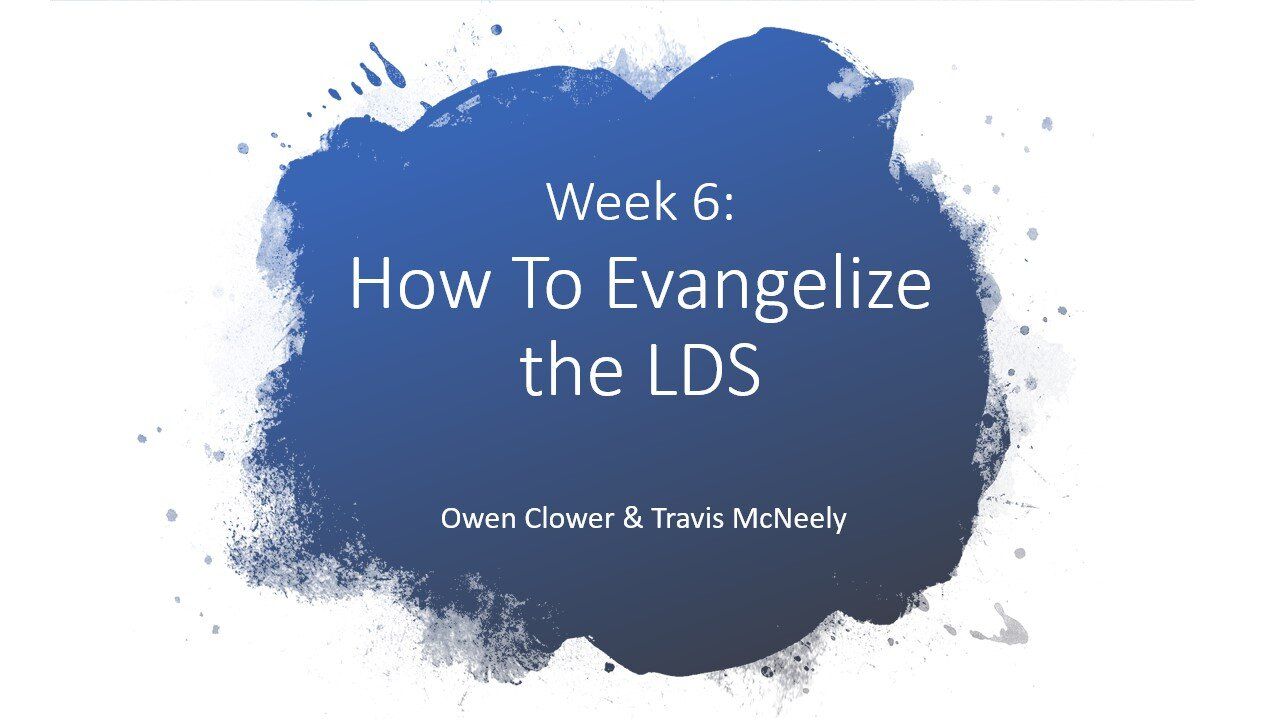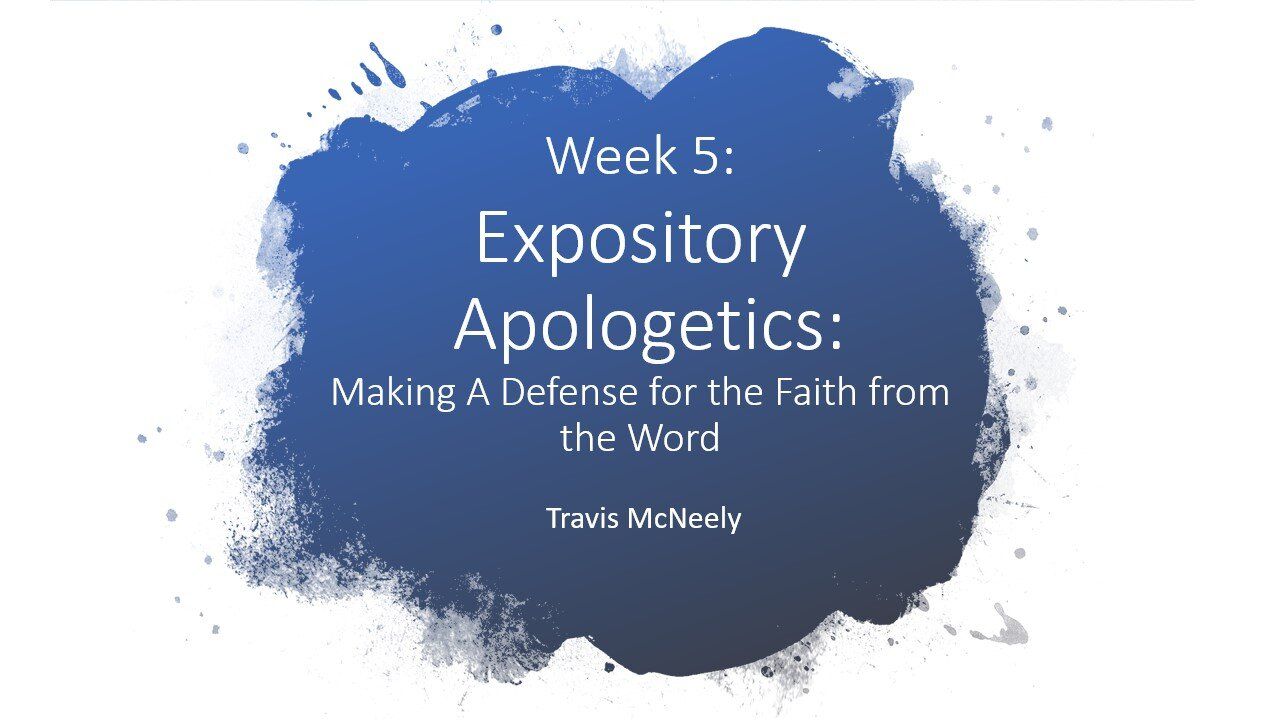The Defense of Christian Liberty in Colossians: Examining the Colossian Heresy: Part 4

Editors Note: This post is in a series of 4 posts from a paper I did in my graduate studies. See Part 1 here. Part 2 Here. Part 3 Here. This is part 4! This is the second part of the series that examines the passage exegetically. Part 4 zeroes in on Col. 2:16-23.
The Defense of Christian Liberty (2:16-23 )This section of Colossians has been labeled by various commentators titles such as: “The Defence of Christian Liberty,”[5] or “The Empty Promise of the False Teaching,”[6] and these titles succinctly state the character of the polemic put forth by Paul here. It opens in v.16 with “Therefore let no one pass judgment on you,” The inferential conjunction οὖν “therefore,” refers back to the positive argument in 2:8-15 and is introducing how, what he is about to say, builds upon the foundation of the gospel as explained in the previous verses.The “fullness in Christ” is connected to this section by Paul’s desire for them to resist the false teaching because Christ brings fullness, not these things . Moo states Paul’s intent, “do not let anyone impose upon you a program of spiritual development that does not have Christ at its heart.”[7] The heart of the false teaching is about to be exposed by Paul and exposed for what it truly is.The subject of the clause in v.16, Μὴ. . . .τις “no one,” refers to the false teachers at Colossae, whom the church was allowing to “pass judgment” (κρινέτω) on them, and thus was taking the church captive (2:8) by plausible arguments (2:4). This word κρινέτω is an imperative verb with an Imperfective aspect to it, thereby implying a general command, which is typically used in ethical or moral contexts by the Apostle Paul.[8] This judgment by the false teachers is a judgment about the behavior of Colossian believers, who are clearly not in step with the perpetrators of this philosophy and thereby not considered to be up to their moral standards.The judgment shown by the false teachers is specifically in regards to “questions of food and drink or with regard to a festival or a new moon or a Sabbath” (2:16b). It seems the false teachers are commanding that these things be followed, which it is in accordance with their “ . . . human traditions, according to the elemental spirits of the world and not according to Christ” (2:8b).The questions by the false teachers about the religious practices of the believers in Colossae, “a festival or a new moon or a Sabbath” is actually paralleled in the Old Testament: Hosea 2:11 “And I will put an end to all her mirth, her feasts, her new moons, her Sabbaths, and all her appointed feasts.” In this context, God is putting an end to them because of Israel’s whoredom, but these were positive things prescribed by the Law and were evidence of obedience to God and a sign to surrounding nations of their election by God.[9] If these regulations were followed, the intention behind them was that they would point the people toward the promised Messiah, not towards the rituals themselves, which leads us to 2:17.In 2:17, there is a short explanation of these regulations and it is a kind of polemical jab by Paul, “These are a shadow (σκιὰ) of the things to come, but the substance (σῶμα) belongs to Christ.” It is a jab by Paul because a shadow is not the reality or the “substance” of the truth. A shadow (σκιὰ) is according to Harris, “a faint outline of an object rather than the object itself.”[10] These festivals, new moons, and Sabbaths point to Christ; these things are not the substance. Christ is! The shadow points toward the truth, but is not itself the truth. The shadow only tells the person about the reality of what it is portraying, but a reality is not clearly discernible by the shadow. It is an incomplete portrait, an outline. This idea is found in Plato’s Republic and was well known in Paul’s day. [11] This idea was known so well because of the influence of first century Hellenism, that he was able to draw upon it to make a theological and philosophical statement about God’s revelation in Christ.[12] The shadow itself is not evil or wrong; it is the motive to exalt the shadow by the false teachers, rather than the substance. They are totally missing the substance and that puts them all in grave danger of rejecting the gospel and relying solely on their flesh to accomplish what it cannot.The next verse in the pericope is possibly one of the most debated verses in the New Testament but is an incredibly revealing verse in regards to what it says about the Colossian heresy and how Paul views these heretics. 2:18 opens up with a very rare imperative verb, καταβραβευέτω, meaning, “‘decide against’ (as umpire), and so rob of a prize, condemn.”[13] It is translated in the clause, “Let no one disqualify [condemn] you.” This word is a compound word, which carries the meaning from the primary verb βραβεύω, to “be in control of someone’s activity by making a decision.”[14] This verse correlates very well with the imperative verb of 2:16, which Paul used to exhort the Colossian believers to not allow anyone to judge them based on these external rites. These false teachers were seeking to control the actions of those at Colossae, insisting strongly against Christ’s sufficiency and for their regulations. This control is not exactly comparable to what Paul wrote about in Galatians, it was of a different kind. The group was “delighting in” a higher form of spirituality that they had access to because of their actions.[15] Just as the imperative verb in v.16 is supported further by v.17, there is a similar pattern with v.18-19. The imperative verb in v.18 is supported by v.19.These false teachers, by their insisting on the necessity for the Colossians to practice asceticism (ταπεινοφροσύνη) and the worship of angels (φρησκεία τῶν ὰγγέλων), they are trying to disqualify them because they do not do these things with them, thus implying the inherent superiority of those who have these visions.[16] As mentioned at the end of the previous paragraph comparing the clauses of v. 16-17 and v. 18-19 can help us to understand how Paul is using these words.For instance, when listing the things following the imperative verb that the false teachers are “passing judgment” upon the Colossian Christians, it is in a series of prepositional phrases with the word ἐν used three times in connecting the regulations there. Now in v. 18, Paul does not use that structure so frequently because ἐν is used once and it connects the two practices they insist upon: asceticism and the worship of angels. This reveals that there is a strong connection between the two that shows that they are sequentially dependent on one another. The false teachers state that this asceticism leads to visions of angels, whom they see and therefore worship. This is grammatically seen as an objective genitive in regards to the phrase “worship of angels.”[17] This grammatical understanding of the text is contrary to Francis’ view of it being subjective genitive and I believe it is an objective genitive upon my exegesis of the text.[18]Through asceticism, they experience these angelic visions and as a result, they are “going on in detail about visions” (ἃ ἑόρακεν ἐμβατεύων). There is much conjecture about this phrase, which some of the main deviances from mainstream scholarship were addressed before, particularly in regards to Dibelius. By practicing asceticism they are physically, emotionally, and spiritually manipulating their senses and going into trances where they have visions of angels, and through this, they are “puffed up without reason by his [their] sensuous mind.” Why are they considered to be “puffed up and without reason” by Paul? These are strong polemical tones and the phrase is dripping with irony by Paul. For earlier, they were trying to be persuasive with “plausible arguments” (2:4). In other words, these arguments were convincing them to abandon the all-sufficient Christ and to pursue these “shadows,” and not the substance.Then Paul slams their “persuasiveness” and says that they are “puffed up without reason” and labeled them as having a “sensuous mind.” Those claiming to be reasonable (2:4) are in fact, according to Paul, “without reason” and guided not by the reason they claim, but by their sensuality. This is quite the ironic insult to these false teachers and he is not done yet. Especially if this is a type of speculative philosophy or some sort of mind-body dualistic philosophy, then this is a major insult to be accused of being driven by sensuality instead of reason.The reason why they are so puffed up and unreasonable and sensuous in mind is that they are “not holding fast to the Head” (2:19). The whole body can only be utilized for good by submission to the Head of that body. Jesus is the Head and his church is the body, the same metaphor used in 1 Cor. 12:12-31. The growth that the body experiences is not from the ascetic efforts, the regulations, the visions of angels, the strict adherence to dietary laws, new moons or Sabbaths or anything else. The growth comes solely from God, and through the Head, Christ, and in the believer’s union with him . This reveals that the false teachers at Colossae, by not holding fast to the Head, were likely members of the congregation, but they may have brought with them their idolatrous tendencies from pagan or Jewish ideas when converted to Christianity.The growth from God has a foundation in the gospel, unlike the fleshly nature of false teaching. Paul poses an important question to those in Colossae, “If with Christ you died to the elemental spirits of the world, why, as if you were still alive to the world, do you submit to regulations,” reiterating what he has already said previously (2:8-15). In Col. 2:8, Paul points out that their vain philosophy is not according to Christ, but according to man and “the elemental spirits of the world.” Then in v.9, he exalts Christ as having the fullness of deity dwelling in him bodily. The Colossian believers have been filled in him, who is totally supreme as God over all these traditions that are perpetuated by “the rulers and authorities” (2:10). He is head over these false teachings, not that they stem from him: by no means! Rather, these rulers and authorities exist under his domain and sovereignty because Christ reigns, “seated at the right hand of the throne of God” (3:1).This verse (2:20) also echoes what he covers in the above theological section, 2:11-15, which describes the imagery that teaches them how to understand how God has made them alive and thus makes Jesus Christ sufficient over all these false teachings (2:11-12). Because he died and the believers in him died with him to these things (2:13), then his canceling of the debt, which he nailed to the cross, further proves this: that the debt owed by them had to be set aside because the legal demands required their condemnation (2:14).Jesus strips the “rulers and authorities” of all power they have and triumphs over them through his finished work on the cross. This brings freedom to the Colossian believers, not the so-called superiority gained through the practices of this philosophy. What makes the claim of the false teachers preposterous is that Jesus set aside the regulations at the cross, and now there are some who are trying to force it back on them! They do not have to submit to regulations to earn God’s acceptance or to truly experience God. They do not need to live as if they were still alive to the “elemental spirits of the world” which they died to in Christ (2:20). These false teachings exalt material things to abstain from to earn acceptance from God in the spiritual realm.The regulations are described further in the sentence beginning in v.20 that has not been finished. It continues with what the regulations are “‘Do not handle, Do not taste, Do not touch’ (referring to things that all perish as they are used)—according to human precepts and teachings?” (v. 21-22). The words here used by Paul, give readers a further glimpse into what this heresy might be. This prohibition may contain Jewish-oriented rules and could be taken up into the syncretism of the teaching.[19] The Law could not stop the indulgence of the flesh, but the Greek word for law used by Paul (νόμος) is not used here, but possibly alluded to through the nature of these regulations. For these things could be appealing, leading toward a false sense of superiority through depriving the physical nature, to gain further in the spiritual nature, but as v. 23 goes to note: “but they are of no value in stopping the indulgence of the flesh.”This text is a very strong follow-up from Paul’s gospel statements in 2:8-15. Paul made a positive argument previously, but now he is exposing the negative aspects of this philosophy and showing how it is against Christ and according to human precepts and teachings. This does not bring greater fulfillment for the believer at Colossae, but rather a deeply profound emptiness that leaves them longing for more, which leads Paul to exhort them to “seek the things above, where Christ is, seated at the right hand of God” (Col. 3:1b). That is where true fulfillment is found, wherever Christ is, and not in this philosophy full of “empty deceit” (2:8). The theology of this section upon exegesis is very enriching for the Christian seeking to view Christ as supreme and sufficient over and in all things. It is a strong polemic against legalism and for the status of the Christian’s liberty. It does not ignore the physical realm, but rather points to how Christ reigns in it, as the rest of Colossians reveals. [5]Ralph P. Martin, Colossians: The Church’s Lord and the Christian’s Liberty (Grand Rapids, MI: Zondervan Publishing House, 1972), 88.[6]Douglas J Moo, The Letters to the Colossians and to Philemon (Grand Rapids, MI: William B Eerdmans Publishing Co, 2008), 216.[7]Ibid., 218.[8]Constantine R. Campbell, Colossians and Philemon : A Handbook on the Greek Text (United States: Baylor University Press, 2013), xxvi, 42.[9]O’Brien, Colossians, 139.[10]Murray J. Harris, Colossians & Philemon: Exegetical Guide to the Greek New Testament (Grand Rapids, MI: William B. Eerdmans Publishing Co., 1991), 119.[11]Plato, The Republic, ed. C. D. C. Reeve, and G. M. A. Grube, 2nd ed. (Indianapolis, IN: Hackett Publishing Company, 1992), 514a-518b[12]Smith, Heavenly Perspective, 118.[13]W., Arndt, F. W., Danker, & W. Bauer, A Greek-English Lexicon of the New Testament and Other Early Christian Literature . 3rd ed. (Chicago: University of Chicago Press, 2000), 515.[14]Ibid., 183.[15] Smith, Heavenly Perspective , 121. Contra ESV “insisting on.”[16]Richard R. Melick, Philippians, Colossians, Philemon: New American Commentary , Vol. 32 (Nashville, TN: Broadman & Holman Publishers, 1991), 271.[17]Daniel B. Wallace, Greek Grammar Beyond the Basics: An Exegetical Syntax of the New Testament (Grand Rapids, MI: Zondervan, 1996), 116-7.[18]O’Brien, Colossians , 142-3.[19]Moo, Letters to Colossians and Philemon , 236.

Want To Book Me for Your Event or Conference?
Fill out the form below and we'll be in touch!
Book Travis McNeely
We will get back to you as soon as possible
Please try again later
More posts like this...




